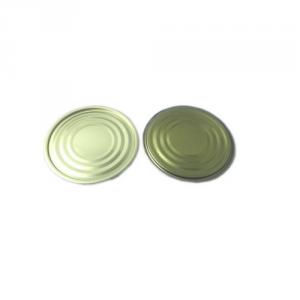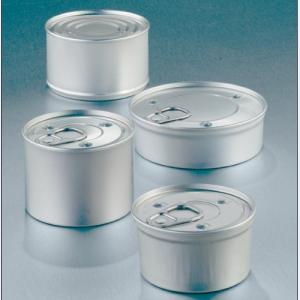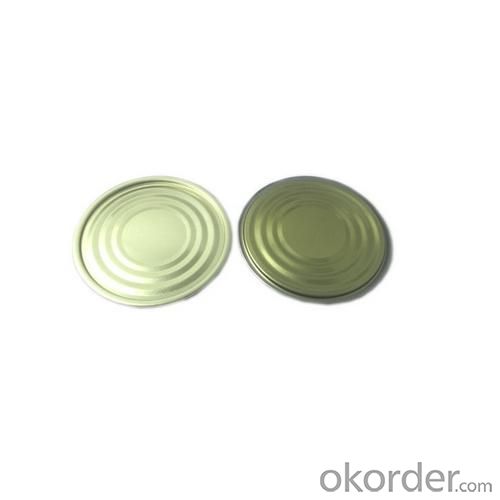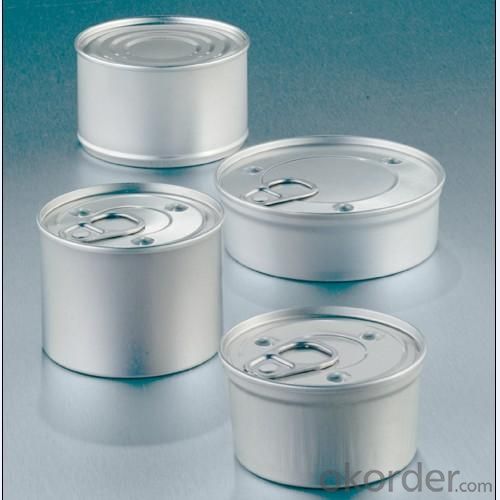Can End/Tab Stock
- Loading Port:
- China Main Port
- Payment Terms:
- TT or L/C
- Min Order Qty:
- 10 Tons m.t.
- Supply Capability:
- 8000 Tons Per Month m.t./month
OKorder Service Pledge
OKorder Financial Service
You Might Also Like
1.General Information of Can End/Tab Stock
CAN END/TAB STOCK is between 0.235 mm and 0.355mm in thickness with clear paint or golden color paint. Paint is usually from VALSPAR OR PPG and lubrication can be done.
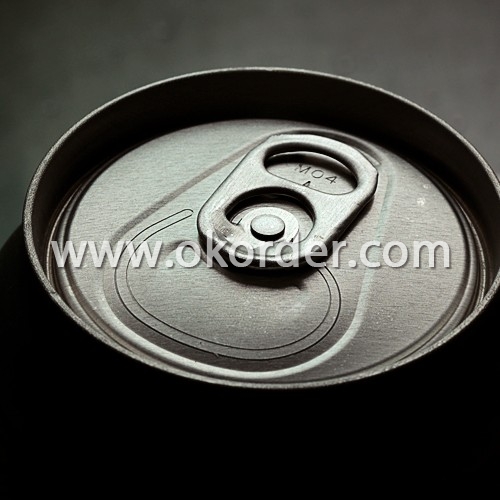
2.Features of Can End/Tab Stock:
CNBM produces aluminum coils which meets the highest standards in its own mill while save the cost. Our strong quality control term bring you the most-qualified products. And with state-of-the-art equipment, and the state owned company background, we have to say, you will understand why there are so many company choose CNBM to be their supplier. CNBM aluminum complying with YS/T 429-2000(Chinese Industry Standard),GB/T 3880,EN485,ASTM B209.
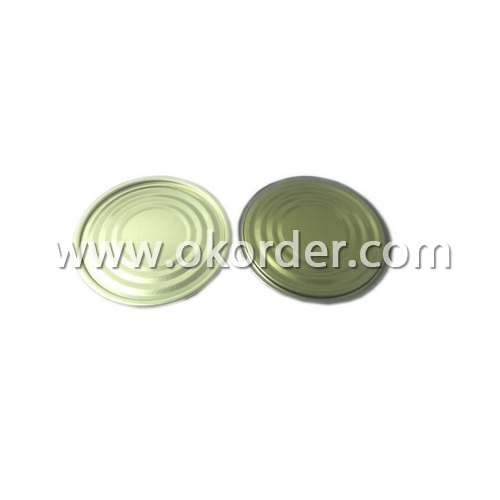
3.The main producing procedure of Can End/Tab Stock:
Rolling--Annealing--Slitting—Rinsing—Coating—Baking---Coiling
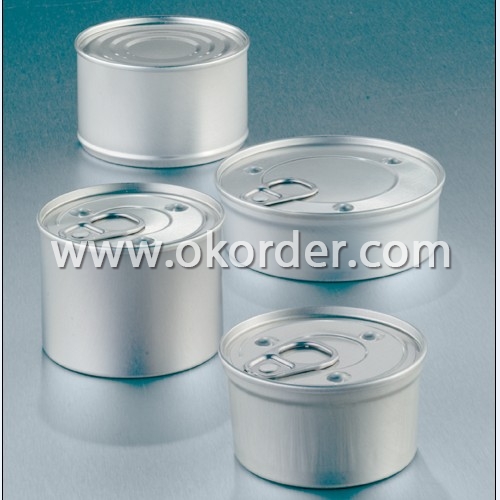
4. Specification of Can End/Tab Stock
Alloy | AA5052, AA5182, AA3004, AA3104 |
Temper: | H19,H48 |
Thickness: | 0.235-0.355mm |
Width: | 700mm- 1800mm |
Standard: | GB/T17748-1999, ASTM, ISO, EU standard |
Special Specification is available on customer’s requirement | |
- Q: How much is the 25mm aluminum coil at current market?
- You must mean 25-wide aluminum coil. The price consists of the aluminum ingot price and processing charges. For example, if the processing price is 4500 yuan, it is relatively cheap. 25mm-wide aluminum coil is very narrow, so it will be much complicated to strip.
- Q: Is it possible to utilize steel wires in the creation of jewelry or decorative items?
- <p>Yes, you can use steel wires for making jewelry or decorations. Steel wires are durable and can be shaped into various forms, making them suitable for a range of designs. They are often used in wire wrapping techniques and can be combined with beads or other materials. However, it's important to consider the type of steel used; stainless steel is more resistant to rust and is commonly preferred for jewelry making. Additionally, steel wires may require special tools for cutting and bending, and proper safety measures should be taken during the crafting process.</p>
- Q: This question asks for a comparison of the pros and cons associated with the use of aluminum coils.
- <p>Aluminum coils offer several advantages, including high thermal conductivity, which makes them efficient for heat transfer applications. They are lightweight and corrosion-resistant, which enhances their durability and reduces maintenance needs. Additionally, aluminum is a cost-effective material compared to other metals like copper. However, there are disadvantages such as lower strength compared to steel, which may limit its use in high-stress applications. Aluminum also has a higher coefficient of expansion, which can lead to issues in precision applications. Lastly, while it is recyclable, the recycling process can be energy-intensive.</p>
- Q: Explain how aluminum coils impact the manufacturing process.
- <p>Aluminum coils significantly affect the production process by offering versatility and efficiency. They are easily formed, cut, and shaped, which streamlines manufacturing. Their lightweight nature reduces the energy consumption in transportation and handling. Additionally, aluminum coils' corrosion resistance and durability reduce waste and the need for frequent replacements, enhancing sustainability. They also contribute to the production of various products, such as automotive parts, construction materials, and packaging, by providing a consistent and high-quality material.</p>
- Q: How are aluminum coils used in the manufacturing of household appliances?
- Aluminum coils are used in the manufacturing of household appliances as they provide excellent conductivity, durability, and corrosion resistance. These coils are commonly used in appliances such as refrigerators, air conditioners, and heating systems. They help in transferring heat efficiently, improving energy efficiency, and ensuring the longevity of the appliance. Additionally, aluminum coils are lightweight, making them easier to handle during the manufacturing process.
- Q: i have some questions about aluminum can recycling??:how much can you get from doing that??where can i take them in indianapolis, in???and what else could i recycle??its good for the earth and i need some money!! :) :D thanks!!! :)
- They are worth about $0.01 per can. You can take them to any scrap metal yard.
- Q: How are aluminum coils used in insulation applications?
- Due to their excellent thermal conductivity and durability, aluminum coils find common use in insulation applications. These coils are frequently employed in the production of air conditioning units, heat pumps, and refrigeration systems to effectively transfer heat, enabling efficient cooling or heating of a space. Aluminum is the preferred material for these coils due to its high thermal conductivity, which allows for efficient heat transfer. Moreover, aluminum is lightweight and corrosion-resistant, ensuring durability and longevity, making it an ideal choice for applications that require these qualities. To create a thermal barrier, aluminum coils are often combined with other insulation materials like foam or fiberglass. This combination helps minimize heat transfer between the inside and outside of a building, ultimately reducing energy consumption and improving overall energy efficiency. Additionally, aluminum coils can be easily molded into various shapes and sizes, providing flexibility and customization options for insulation purposes. This versatility makes them suitable for a wide range of insulation needs, whether in residential, commercial, or industrial settings. In conclusion, aluminum coils play a vital role in insulation applications by efficiently transferring heat and contributing to energy efficiency. Their thermal conductivity, durability, and versatility make them an ideal choice for various insulation needs, ultimately helping in the creation of comfortable and energy-efficient environments.
- Q: What are the common maintenance practices for aluminum coils?
- Some common maintenance practices for aluminum coils include regular cleaning, inspection for damage or corrosion, and ensuring proper airflow around the coils. Cleaning the coils is important to remove dirt, debris, and other contaminants that can accumulate over time. This can be done by gently brushing or vacuuming the coils, or using a mild detergent and water solution to clean more stubborn dirt. It is important to avoid using harsh chemicals or abrasive materials, as they can damage the aluminum surface. Inspecting the coils for damage or corrosion is also essential for maintaining their performance and longevity. Any signs of physical damage, such as dents or bends, should be addressed promptly to prevent further deterioration. Additionally, corrosion can occur due to exposure to moisture or chemicals, so it is important to check for any signs of rust or discoloration. If corrosion is present, it should be treated and the cause of the corrosion should be addressed to prevent future damage. Proper airflow around the coils is crucial for efficient operation. Obstructions or blockages in the surrounding area should be cleared to ensure adequate air circulation. This can include removing any debris or objects that may be restricting airflow, as well as ensuring proper spacing between the coils and nearby objects. Additionally, regular inspection of the air filters and ventilation system is important to prevent any restrictions that could impact airflow. Overall, regular cleaning, inspection, and maintenance of aluminum coils can help ensure their optimal performance and prolong their lifespan. It is recommended to follow manufacturer guidelines and consult with professionals if any issues or concerns arise.
- Q: What are the standard sizes of aluminum coils?
- The specific industry and application can cause variations in the standard sizes of aluminum coils. Nevertheless, there are several widely used common standard sizes. For general industrial applications, the width of aluminum coils usually falls within the range of 36 to 72 inches. The thickness of these coils typically varies from 0.018 to 0.125 inches. The length of the coils may differ, but it is commonly around 1,000 feet or more. In the construction industry, the standard sizes of aluminum coils can differ. The width can vary between 24 and 48 inches, while the thickness can range from 0.019 to 0.032 inches. The length of these coils can also vary depending on the specific project requirements. It is important to note that these sizes serve as general guidelines and can vary based on the specific manufacturer, industry requirements, and customer preferences. It is always advisable to consult the manufacturer or supplier to determine the exact standard sizes available for aluminum coils in your specific industry.
- Q: Normal aluminum like you find in the ground, not the man made stuff
- If you heat it up hot enough, yes. Of course, any atomic matter will also behave that way.
1. Manufacturer Overview
| Location | Henan, China |
| Year Established | 1996 |
| Annual Output Value | Above US$200 Million |
| Main Markets | Mid East;Eastern Europe;North America |
| Company Certifications | ISO 9001:2000;ISO 14001:2004;OHSAS 18001 |
2. Manufacturer Certificates
| a) Certification Name | |
| Range | |
| Reference | |
| Validity Period |
3. Manufacturer Capability
| a) Trade Capacity | |
| Nearest Port | Shanghai |
| Export Percentage | 30%-50% |
| No.of Employees in Trade Department | 21-50 People |
| Language Spoken: | English;Chinese |
| b) Factory Information | |
| Factory Size: | Above 100,000 square meters |
| No. of Production Lines | Above 10 |
| Contract Manufacturing | OEM Service Offered;Design Service Offered |
| Product Price Range | Average |
Send your message to us
Can End/Tab Stock
- Loading Port:
- China Main Port
- Payment Terms:
- TT or L/C
- Min Order Qty:
- 10 Tons m.t.
- Supply Capability:
- 8000 Tons Per Month m.t./month
OKorder Service Pledge
OKorder Financial Service
Similar products
Hot products
Hot Searches
Related keywords

